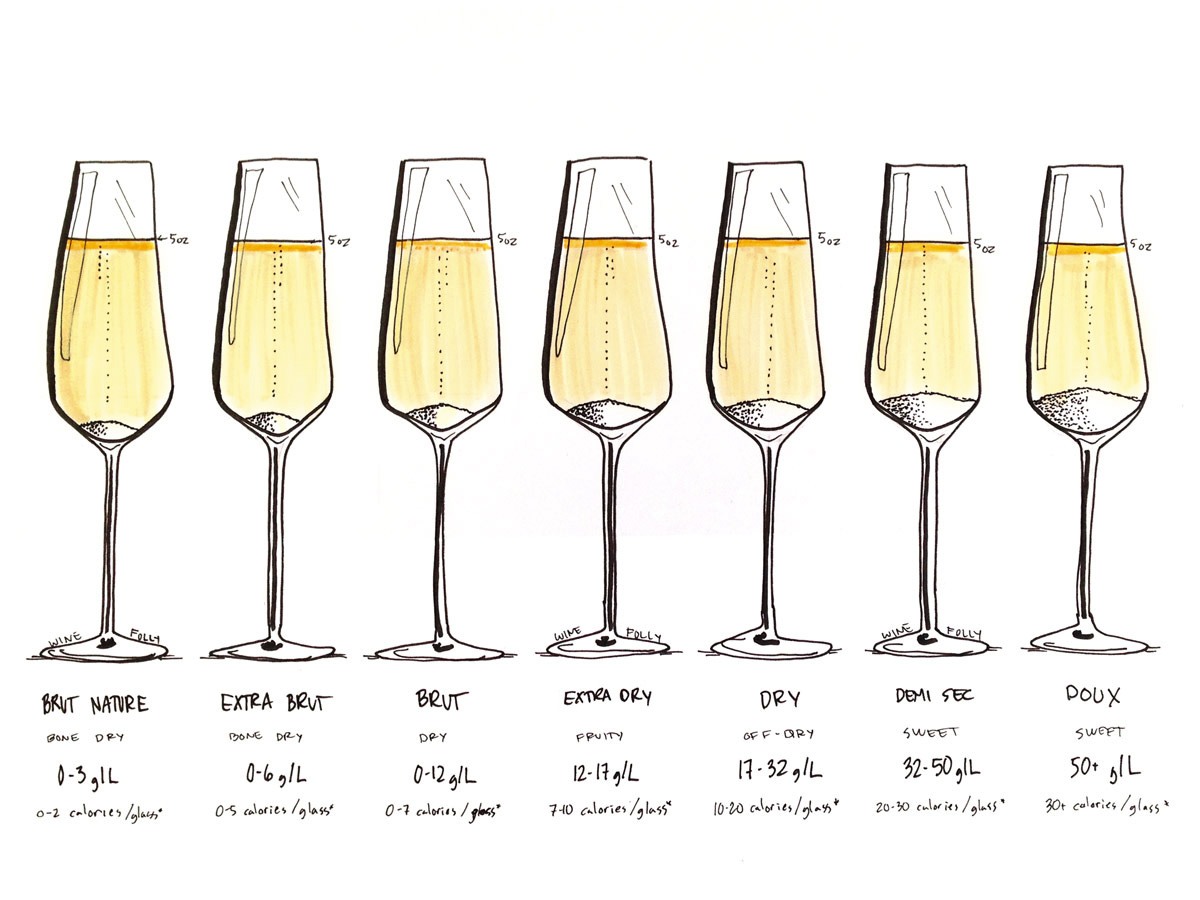"Are any of the wines dry?"
"Yes. Literally every single one on the list."
This guest-interaction is my biggest pet peeve in all of my years of working the restaurant floor.
NOBODY understands what it means for a wine to be considered dry (or sweet). Which is completely fine. There's countless fundamental things in other industries that I am out to lunch about.
I think the most common misconception in wine is when folks confuse fruitiness for sweetness. A wine may smell sweet because it's so fruity, but in fac,t not have any sugar in it at all.
Most people played "slap the bag" with boxed cooking wine in their collegiate glory days, and now think that it's common for everyday table wine to exist in sweet styles. Quite frankly, they don't. Obviously there are exceptions (hello bulk, commodity, grocery store rieslings).
Remember how fermentation works?
Yeast cells metabolize sugar, which creates alcohol. And when making table wine, 95% of the time the fermentation finishes, meaning that the yeasts "eat" all the sugar. This is what we would call a wine that is "fermented dry."
Yeast + Sugar = Alcohol + CO2
Here is the quick and dirty on sweetness in wine:
- Sweetness = the literal presence of sugar in a wine
- Sweet wine = the presence of sugar is the prominent feature of the wine
- Examples of truly sweet wines are dessert wines like Sauternes, Tokaji, Port, Vin Santo, Sherry, etc.
But sweetness in wine is a spectrum, and it literally comes down to...
How much Residual Sugar (RS) is present in this wine?
Fermentation does not always finish aka it does not always "ferment dry." This happens in colder winemaking regions like Germany.
Because the growing region is cooler and/or has less sunshine, the grapes struggle to ripen, resulting in higher levels of acidity and lower levels of natural grape sugars.
This cold climate will also affect the winemaking environment. Cold temperatures (whether intentional or not) will halt the fermentation, leaving behind residual sugar that never got metabolized by yeast.
Although many of these styles have higher levels of residual sugars, they also have higher levels of acidity, resulting in a sound, balanced wine.
So here is an approximate guide to the spectrum of wines from dry to sweet:
- Dry = no sugar at all, or sugar levels are so low, that the tongue cannot detect it (virtually all table wines that don't suck)
- Off Dry = tiny amount of detectable sugar (i.e. "dry" Alsace Gewurtztraminers, Brut Champagnes, inexpensive bulk grocery store reds/whites/roses)
- Medium Dry & Medium Sweet = distinct presence of sugar, although not sweet enough to pair with desserts (dessert pairing 101: the wine needs to be sweeter than the food). Medium sweet has higher sugar levels than medium dry.
- Sweet = sugar presence is the dominating feature of the wine. Appropriate to pair with dessert
Champagne production is a great example of sugar levels.
Champagne is a cold climate with grapes that naturally have a lot of acidity. Often times in Champagne production, sugar, or the liqueur d’expedition (a mix of sugar and wine) is added to the final wine to balance out the tart, screaming acidity.
Kind of like making perfect lemonade. Not too much lemon juice, not too much sugar. So it's a good example of how some wines need sugar.
Below is a great visual, courtesy of Wine Folly, that explains the levels of sweetness based on Grams/Liter of sugar present in the wine.
Champagne Sweetness Levels:

Read more about sweetness in Champagne on Wine Folly
Don't be afraid of sugar in wine.
Why are we ok with sugar in cocktails (virtually every cocktail has sugar in it), but when it comes to wine, people freak out?
Just because there's sugar in wine, does not mean the winemaker didn't balance it with appropriate levels of sugar. We're not talking about 2-Buck-Chuck here.
Think of it like a margarita. Too much lime (acid) and the cocktail is too tart. Too much sugar (sweetness), and the cocktail is too sweet.
But when uncle Charlie makes that perfectly balanced marg, we're singing and dancing, and everything is awesome!
Thanks for reading! Drop questions, comments, and anything else in the comments section below. Cheers,
-Charlie O'Leary, Founder, Rampant Wine Co